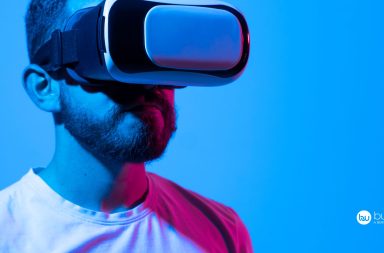Disruptive technologies are creating a health ecosystem like has never been seen before. From big data companies to artificial intelligence providers, the many solutions provided by technology firms represent a new way of delivering healthcare.
This shift is called ‘convergence’ – the bringing together of multiple disciplines to achieve a common goal. In the instance of health, convergence is aiming to improve treatment and care.
Healthcare convergence is already underway, albeit in the very early stages. Some of the world’s biggest technology providers are teaming up with healthcare stakeholders to revolutionise the way we think about healthcare as a whole.
Rather than a distinct technology sector and a distinct health sector, convergence is creating a ubiquitous ecosystem designed to deliver solutions to a common goal between the two. It is building bridges between the two fields, but also between provider and consumer, all the way down to how patients share their data with their healthcare provider.
But where is convergence being demonstrated most aptly and is it truly the future of healthcare?
Bringing worlds together
Probably the greatest impact convergence has had on the healthcare landscape is through the bridges it is building. From creating partnerships between companies in completely different industries, to opening communication channels between those in the same field, convergence is establishing a novel network of working relationships.
For technology companies, new platforms offer a greater opportunity to innovate and create digital solutions, which in turn can be used in the healthcare industry. For healthcare providers, the shifting landscape gives more possibility of innovating the way they deliver care.
Healthcare convergence is about breaking the siloes between sectors in order to provide a more complete service to our customers. – Eugene Borukovich, Global Head, Digital Health Incubation & Innovation, Bayer.
Where does pharma fit in?
As convergence impacts healthcare provision, it naturally affects the pharmaceutical industry too. Convergence is instilling pharma with the need to keep up with the new wave of innovation in care provision and treatment – not only by creating its own solutions, but by fostering the most promising ideas.
The second part is not something pharma is used to. Now, sellers of some of the world’s most successful medicines are being forced to work outside their comfort zone, looking towards startups in the field and tying their methodologies into their own operations.
In doing so, pharma needs to be aware of its own influence on creativity. Unfortunately, the old adage of pharma as a lurking, money-hungry industry is still alive, so it makes sense to tread carefully and take hold of the opportunity at the very beginning of the process, looking towards startups and encouraging innovation in a non-intrusive and collective fashion.
As an industry, we need to understand patient needs in order to innovate our own products. In addition, we can help drive the innovation from a grass roots level in terms of fostering startups. – Kristin Milburn, Strategic Partnerships Head, Digital Acceleration Lab, Novartis
The land of opportunity
So, with a rapidly evolving digital age comes the opportunity to collaborate, and with that comes the future of healthcare.
For pharma, the emerging landscape represents a time to re-define its approach, taking advantage of innovation to move from the traditional ‘medicines manufacturer’ role to a more holistic, care-providing service – one that mirrors the shift in doctor-patient relationships to becoming partners in healthcare.
Although we are only at the beginning of such a complicated process – one that seems to be a daunting and complex task – the future represents a market of burgeoning opportunity.
The more integrated model within pharmaceutical companies will soon replace the traditional model. That creates a more complex environment, which brings a lot of opportunities. – Tim Jurgens, Head, Roche Diabetes Care New Business Models



